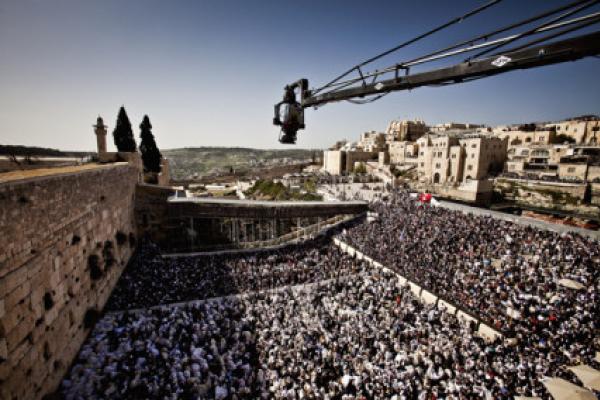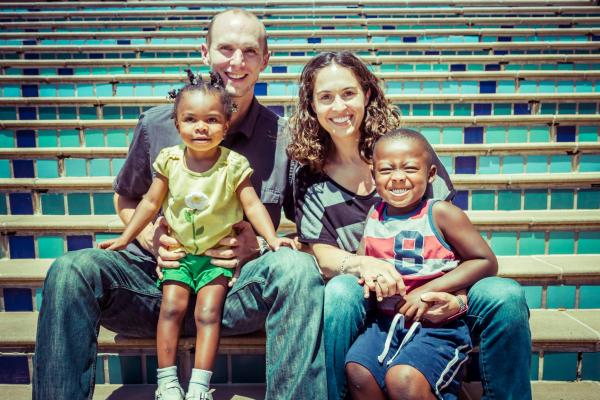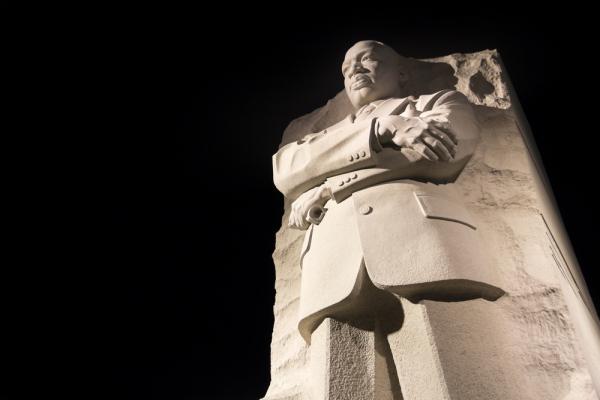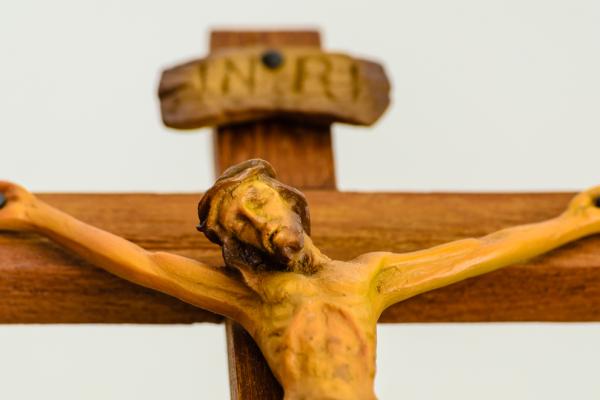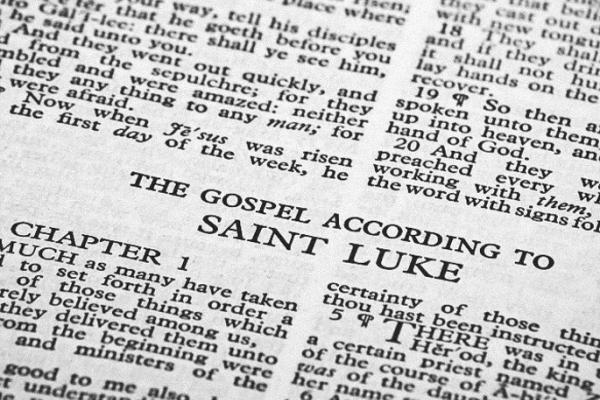It may be as close as a person can get to praying at the Church of the Holy Sepulchre, the Al-Aqsa Mosque and the Western Wall, without actually going there.
The newly released movie “Jerusalem,” filmed in 2D and 3D and playing on IMAX and other giant-screen theaters across the U.S. and the world, gives viewers grand, hallmark panoramas, at once awe-inspiring and intimate.
For years filmmakers had sought the rights to capture the city from the air, but never before had permission been granted, in part because the holy city is a no-fly zone.
Still, before filming began in 2010, producer Taran Davies came up with an extensive wish list of all the sites and rituals he wanted in the film, and presented it to advisers familiar with the spectrum of religious and secular officials who would have to approve.
“They all laughed and said forget about it,” Davies said. “They said, ‘It’s impossible and you’re not going to get half of what you’re looking for.’”
When people first see our family, they often do a bit of a double take. At first glance, we don’t necessarily look like we go together. My husband and I are both Caucasian, with a quarter Cherokee in me that gives me a little bit of color. Our children are both beautiful African Americans of different shades. When we’re out in public and my son calls out to me, “Mom!” or our daughter calls to my husband, “Dad?” it just doesn’t look “normal.”
The interesting thing that I have learned through being an adoptive parent, especially in a transracial adoption, is that we are a visual testimony to the Kingdom of God. Not everyone might receive us or see us in this way, but the reality is that as Christians, we have all been adopted by God to be a part of his family. Galatians 4:4-6 says this: “But when the right time came, God sent his son, born of a woman, subject to the law. God sent him to buy freedom for us who were slaves to the law, so that he could adopt us as his very own children. And because we are his children, God has sent the Spirit of his Son into our hearts, prompting us to call out, ‘Abba, Father.’”
In football, if the defensive players have no fear of your going long, they stack up against you and the shorter plays become incredibly hard and frustrating. It's as if the defense can predict what you're going to do and outnumber you.
Many people live their lives, and some nonprofits run their organizations, this way —never going for the long ball.
I must use the adverb “almost” because there is a necessary distinction between all and some. It is the difference between mighty and almighty.
But we must never forget that whatever is mighty can harness the power to destroy lives, families, communities, institutions, and nations. This is what racism does on a daily basis.
We have, to some degree, lost the will and/or the capacity to identify and challenge this destructive and powerful force in our culture and institutions.
This Advent season presents the church with a great moment — an opportunity — to sharpen its discernment. It is an opportunity for the church and the world to experience a new birth in love, racial justice, and reconciliation.
“Lord, when were you in prison?” we’ll ask of you one day;
And when did we go visit you, and listen well, and pray?
And when did we show mercy there (as we need mercy, too)?
As we love those in prison, Lord, we show our love to you!
When you taught love of neighbor, had you heard in your time
Of one who lay beside the road, a victim of a crime?
The neighbor that you said was good brought help and wholeness, too;
May we help those who hurt so much from crimes that others do.
There is an awesome moment in the opening chapter of the book of Luke where the writer frames his gospel as an epic celestial battle taking place in the heavenly realm: This is the story of the reign of men vs. the reign of God.
Luke makes it clear. What happened in these pages began in the days of King Herod of Judea (Luke 1:5). King Herod was a product and protector of empire. His father was appointed procurator of Judea by Julius Caesar. He subsequently appointed Herod military prefect of Galilee. After the death of Julius, Antony, and Octavian, Augustus Caesar favored Herod and gave him the name "king of the Jews," eventually becoming governor of Judea.
Herod was most concerned with maintaining his power — at all costs. He built the Roman Empire at his own people's expense. He built great monuments and structures, including the reconstruction of the Jerusalem Temple, enslaving his own people to do it. He used the Jews' labor to erect temples to pagan deities, and, paranoid of anyone who might usurp his power, Herod schemed against his own family, executing three of his own sons for insurrection — one only a few days before his death.
Enter a priest named Zechariah and his wife, Elizabeth.
Nearly every home has at least one Bible, although few read it.
But 16 percent of Americans log on to Twitter every day. And that’s where author Jana Riess takes the word of God. A popular Mormon blogger at Religion News Service and author of “Flunking Sainthood,” Riess spent four years tweeting every book of the Old and New Testaments with pith and wit.
Now, the complete collection — each chapter condensed to 140 characters — is on sale as “The Twible,” (rhymes with Bible) with added cartoons and zippy summaries for each biblical book.
Her tweets mix theology with pop-culture inside jokes on sources as varied as ”Pride and Prejudice,” “The Lord of the Rings,” and digital acronyms such as LYAS (love you as a sister). To save on precious character count, God is simply “G.”
